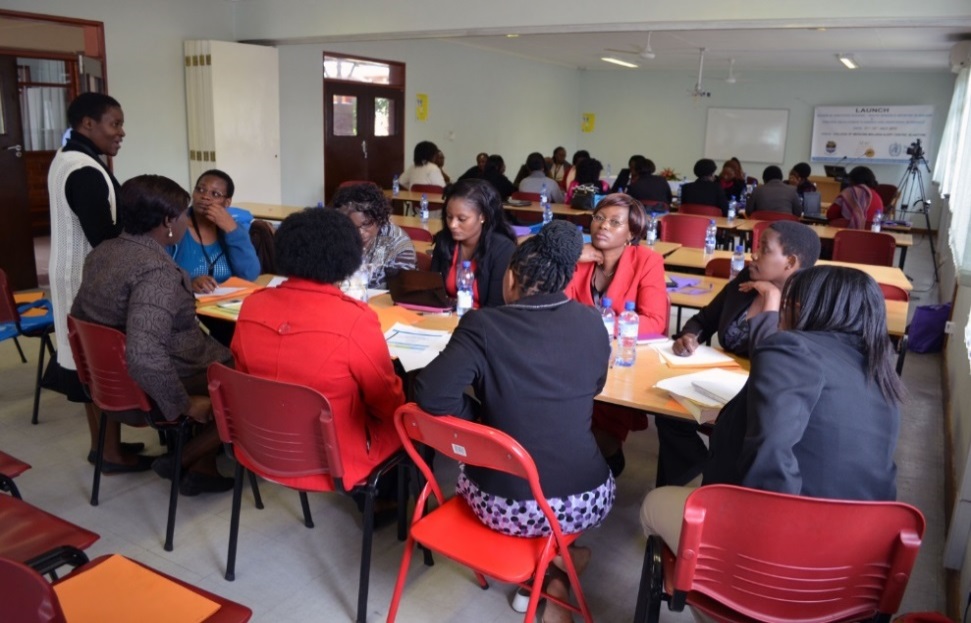Problem
Women are under-represented in health research in Malawi, partly because they lack mentors, have difficulties continuing their careers after taking a break, and often work in institutions that lack policies to support women’s engagement in research.
Proposed solution
To address these barriers, a network supporting women scientists in infectious diseases (WIDREM) has been established. WIDREM provides professional support for women scientists in Malawi through a mentoring program at the University of Malawi and facilitates information sharing among women scientists in Malawi.

Background
Located in southeastern Africa, Malawi is a landlocked country bordered by Zambia to the west; Tanzania to the north, and Mozambique to the east, south and southwest. Malawi is a low-income country with a population of 17 million. More than three-quarters of the population live in rural areas, and have a high burden of infectious diseases. The country is politically stable.
Given that fewer than 1 in 5 researchers in Malawi are women (UNESCO Institute for Statistics, 2015), efforts have been made to address the gender gap in science by integrating gender in the country’s science and technology frameworks. Malawi’s revised National Science and Technology Policy, initially adopted in 2002, promotes women’s access to science and technology (S&T) at all levels of education, and fosters gender equity, including the entry of women in education employment in S&T. After reviewing Malawi’s Strategic Plan for STI (2011 to 2015), the Secretariat of the National Commission for Science and Technology found that it lacks effective policies and plans to strengthen and improve women’s careers in infectious diseases research, hindering women scientists’ career development.
Empowering early-career women scientists in Malawi
Recognizing the challenges that early-career women scientists in Malawi face, Dr Atupele Kapito-Tembo, deputy director of the Malaria Alert Centre at the University of Malawi, was inspired to support aspiring women scientists to overcome these hurdles. She responded to a call issued by TDR to women scientists and research managers in low- and middle-income countries (LMICs) to develop ideas on how to improve career development for women research scientists working in the area of infectious diseases of poverty.
When the University of Malawi was awarded 1 of 9 grants to support early-career women scientists, Dr Kapito-Tembo, along with champions like Dr Getrude Chapotera embarked on establishing Women in Infectious Diseases in Malawi (WIDREM), a national network.
What was done
The project established a network to provide professional support and facilitate information sharing among women scientists in Malawi. It also established a mentoring programme at the University of Malawi to support women scientists in their career development.
Launched in July 2015, WIDREM facilitates information sharing among women scientists in the field of infectious diseases. In addition to the network, a mentoring programme housed at the University of Malawi’s College of Medicine (COM) provides one-on-one professional support and encourages women scientists to take advantage of institutional, regional and international opportunities for mentoring. Also established at the College of Medicine (COM) is a Career Development Programme that will be expanded to all constituent colleges within the University. Of the 45 scientists who attended the programme, 34 forged plans for developing their careers.
In addition, the project is helping to increase the number of mentors and advocates by raising awareness of the importance of mentoring programmes across the five constituent colleges.
Impact
Several institutions in Malawi are developing frameworks to create an enabling environment to support women in science. The National Commission on Science and Technology is providing linkages to other women in science networks in Malawi and advocating for women in science. The National Council of Higher Education is developing policies designed to support women in science and programming that addresses the needs of women researchers. The University of Malawi’s College of Medicine (UNIMA COM) is developing a policy on gender while the University’s Malaria Alert Centre and the School of Public Health and Family Medicine will work to enhance the research environment for women in science.
Plans are underway to formalize WIDREM and open up the network for membership. In addition to serving as a platform for advancing the careers and promoting the interests of women scientists in Malawi, the network hopes to train women scientists on grant writing so that they can apply for grants– an essential skill for research scientists.
A focal point based in each constituent college at the University of Malawi has been identified and will initiate, facilitate and establish an institutional mentoring program. In addition, a mentor-mentee database has been developed to facilitate the selection and pairing of mentors and mentees.
For more information, contact:
Dr Atupele Kapito-Tembo, Malaria Alert Centre at the University of Malawi
E-mail: atupelekapito@gmail.com

